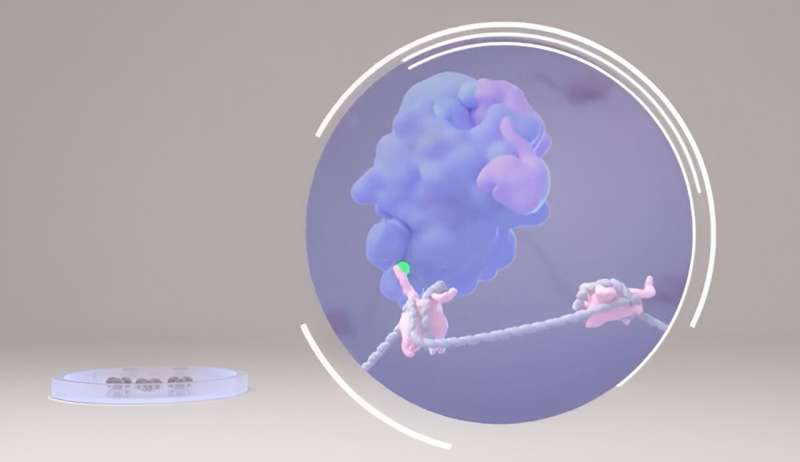This article has been reviewed according to Science X's editorial process and policies. Editors have highlighted the following attributes while ensuring the content's credibility:
fact-checked
peer-reviewed publication
trusted source
proofread
Localized genetic mutations may serve as biomarker for wide range of cancers

A team of Northwestern Medicine investigators have successfully localized novel molecular mechanisms behind a genetic mutation found in a wide range of cancers, which could serve as a biomarker for improving patient stratification and treatment, according to findings published in Proceedings of the National Academy of Sciences.
"It is very gratifying to be able to work on a project molecularly for many years and link the findings to clinical stratification of patients with cancer, specifically bladder cancer in this case, and further develop targeted therapeutics for the treatment of bladder cancer which can be applied to other forms of cancers such as lung, colon and other solid tumors," said Zibo Zhao, Ph.D., assistant professor of Biochemistry and Molecular Genetics and lead author of the study.
Ali Shilatifard, Ph.D., the Robert Francis Furchgott Professor and chair of Biochemistry and Molecular Genetics, was senior author of the study.
Mutations in the MLL4 gene, which belongs to a set of genes known as the Complex of Proteins Associated with Set1 (COMPASS) family, are found in patients with myriad cancer types, including bladder cancer, colorectal cancer, esophageal cancer, endometrial cancer and acute lymphoid leukemia, among many others.
In previous work from the Shilatifard laboratory, published in the Journal of Clinical Investigation, investigators discovered cancer cells that contain MLL4 mutations were more sensitive to a purine synthesis inhibitor, which stunted cancer cell growth, findings that further underscore the potential of MLL4 as a therapeutic target.
In the current study, the investigators utilized CRISPR gene editing to identify the precise molecular mechanisms in cancer cell lines with MLL4 mutations. By applying immunohistochemistry techniques on tissue samples from patients with bladder cancer, the scientists found that MLL4 mutations localize to the cytoplasm of the cancer cells.
The team then used a metabolic inhibitor called Lometrexol in a bladder cancer mouse model, which significantly reduced tumor stage in mice with MLL4 mutations, suggesting that MLL4 mutations could be used to stratify patients based on expected sensitivity to targeted therapies like lometrexol.
"Roughly one-third of patients with bladder cancer have a mutation in MLL4," Joshua Meeks, '05 MD, '03 Ph.D., '06 '11 GME, the Edward M. Schaeffer, MD, Ph.D. Professor of Urology, associate professor of Biochemistry and Molecular Genetics, and a co-author of the study. "Lometrexol functions like methotrexate, which is part of our chemotherapy regimen for bladder cancer. This study may explain why the drug is effective in only about half of patients."
The study suggests that cytoplasmic MLL4 mutations could serve as a biomarker for improving patient stratification and treatment outcomes, according to the authors.
"Cytoplasmic change in MLL4 could be a simple yet powerful biomarker to better predict response to methotrexate regimens. Unfortunately, there is a shortage of methotrexate so it would be ideal to pursue lometrexol in this setting. I am incredibly enthusiastic about collaborations that bring world-class science into our hospital," Meeks said.
The findings may also inform the development of new targeted therapies that restore MLL4 function in different cancers and diseases.
"The paper represents a way that you can stratify patients who have bladder cancer based on the presence of MLL4 in the cytoplasm, and those who have MLL4 in the cytoplasm may be great candidates for this metabolism therapy that we have identified," said Shilatifard, who is also the director of the Simpson Querrey Institute for Epigenetics and leader of the Cancer Epigenetics & Nuclear Dynamics Program at the Robert H. Lurie Comprehensive Cancer Center of Northwestern University.
More information: Zibo Zhao et al, Somatic mutations of MLL4/COMPASS induce cytoplasmic localization providing molecular insight into cancer prognosis and treatment, Proceedings of the National Academy of Sciences (2023). DOI: 10.1073/pnas.2310063120

















